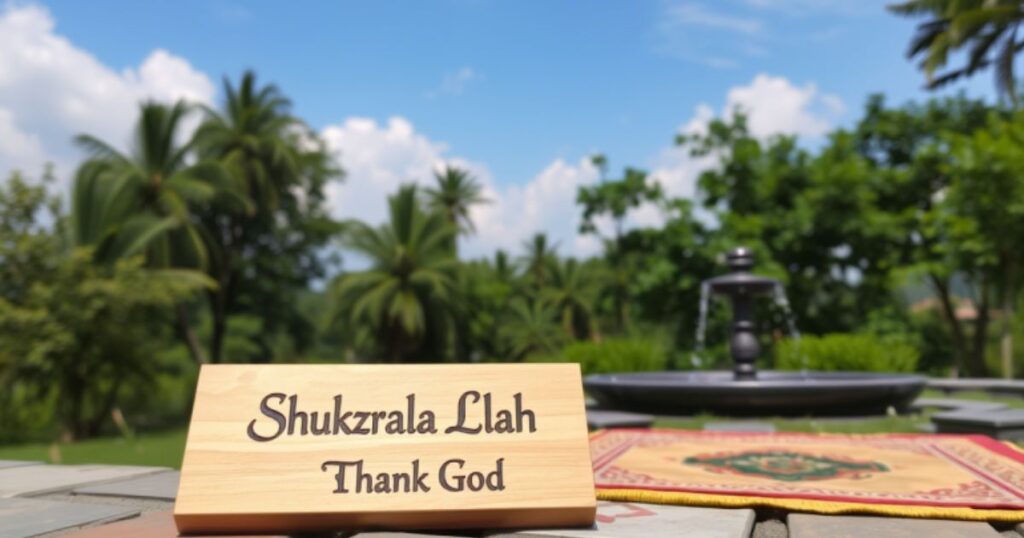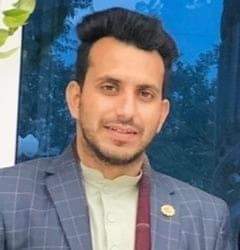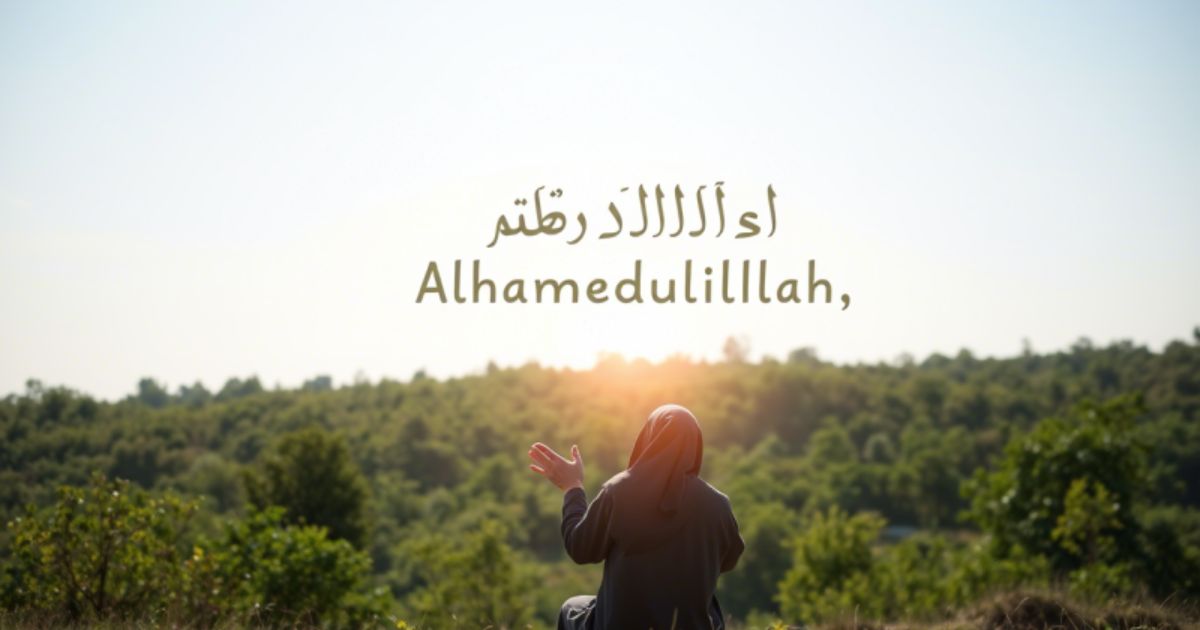In Islam, gratitude is not just a feeling it is a form of worship. Expressing thankfulness strengthens our connection with Allah and aligns our hearts with faith. The Quran and Sunnah are filled with reminders to give thanks. These 24 short prayersfor Thanking God are designed to help Muslims develop an attitude of Shukr gratitude, even in life’s simplest moments. With sincere intention and a mindful heart, these Duas can transform your day and uplift your soul.
26 Heartfelt Islamic Points on Thanking God
1. Begin Your Day with Alhamdulillah
Each new day is a gift from Allah. By starting your morning with Alhamdulillah, you acknowledge His mercy. This simple phrase sets a positive tone for your day. It reminds you of the countless blessings already present. When said with sincerity, it becomes a powerful form of worship. Thanking God for life and breath builds humility. Keep this prayer on your lips every sunrise. It will shift your focus from problems to praise.
2. Thanking God Through Daily Salah
Salah is more than ritual it’s the believer’s connection to the Creator. Within every prostration lies an opportunity for gratitude. Each Rakah offers time to reflect on Allah’s favors. Reciting Surah Al Fatiha is itself an act of Praising Allah, especially with “All praise is due to Allah.” This recurring practice engrains Shukr into your soul. Approach prayer with intention and presence. You’ll find your heart softened with every Sujood.
3. Gratitude for Health and Strength
Good health is often overlooked until it’s gone. The Prophet Muhammad (PBUH) said we’ll be questioned about it. Take a moment to say, “O Allah, thank You for my strength and well being.” Acknowledge even your smallest abilities from walking to seeing. This form of Praising Allah boosts your emotional resilience. It also brings awareness to your responsibilities. Gratitude for health leads to healthier choices in return.
4. Expressing Shukr in Tough Times
Even trials carry hidden blessings. Saying Alhamdulillah during hardship reflects mature faith. The Prophet (PBUH) taught us to praise Allah in all conditions. This short prayer, “O Allah, I thank You even in difficulty,” changes your mindset. It helps you grow spiritually and emotionally. Thanking God in trials invites ease. It aligns you with the wisdom behind Divine decrees.
5. Thanking God for Family and Loved Ones
Our families are among our greatest tests and gifts. Each moment with them is a blessing to cherish. A short Dua could be, “O Allah, thank You for the love You placed in my life.” Such gratitude increases affection and harmony. Expressing Shukr for family also teaches children to be thankful. This prayer brings peace into the home. Make it a daily habit to acknowledge these blessings.
6. Recognizing Allah’s Mercy
One of Allah’s names is Ar Rahman the Most Merciful. His mercy surrounds us in every breath. A simple prayer of Thanking God might be, “O Allah, thank You for Your unending mercy.” Understanding this mercy changes how we treat others. It makes us more compassionate and less judgmental. Mercy is a gift not earned but given. So, acknowledge it with sincerity and awe.
7. Thanking God for Guidance
Guidance in Islam is the greatest blessing. Without it, we are lost. Say, “O Allah, I thank You for guiding me to Islam and keeping me firm on the path.” This prayer increases awareness of the Quran’s value. It reminds you to seek knowledge and correct action. Thanking God for guidance deepens your faith. Let this Dua be part of your regular remembrance.
8. Daily Provision and Rizq
Your daily meals and income are from Allah alone. Recognize this by saying, “O Allah, thank You for the halal provision You’ve given me.” Gratitude increases sustenance. The Quran promises that if you’re thankful, Allah will increase you. Whether you have little or much, praise Him. Your Dua of Thanking God invites more barakah into your life. Rizq is not just money it’s everything beneficial.
9. Shukr for Peace and Safety
Many people live in fear, but Allah has granted us peace. Say, “Ya Allah, thank You for the safety I enjoy today.” A secure home is a huge blessing. Don’t take for granted your ability to sleep peacefully. Gratitude for peace invites contentment. It also builds empathy for those suffering around the world. Use your peace to serve others.
10. Remembering Allah’s Names
Each of Allah’s 99 Names reveals a reason to be thankful. For example, AshShafi the Healer deserves praise when you recover from illness. Reflecting on His names deepens love and understanding. Say, “Ya Allah, I thank You as Ar Razzaq, the Provider.” This personalizes your Shukr. The more you know His names, the richer your Duas become.
11. Gratitude for Forgiveness
Allah’s forgiveness is constant and vast. No matter how many sins, His door is open. Say, “O Allah, thank You for forgiving my mistakes, even when I forget You.” This helps you move forward spiritually. Gratitude for forgiveness builds hope. It also encourages repentance. Gratitude for mercy brings humility and peace.
12. Blessings of the Quran
The Quran is a guide and healing. Make Dua saying, “O Allah, thank You for the light of the Quran in my life.” Reading and reflecting upon it deepens gratitude. Its words soothe, heal, and transform. Recognizing the Quran as a gift changes how you engage with it. Gratitude for this book of wisdom will make you more connected to it daily.
13. Thanking God in Prostration (Sujood)
The closest you are to Allah is in Sujood. Use that moment to whisper, “Alhamdulillah Ya Rabb.” Prostrating with gratitude fills the heart with tranquility. It also teaches surrender and trust. Gratitude while your forehead touches the ground is a sincere form of worship. Don’t miss that opportunity during every Salah.
14. Short Gratitude Dua After Eating
The Prophet (PBUH) would thank Allah after meals. Say, “Alhamdulillahillazi at’amana wa saqana.” This simple Dua recognizes even basic blessings. Eating mindfully becomes an act of worship. When Thanking Godbecomes routine, even food tastes sweeter. Gratitude refines your spiritual character.
15. Thankfulness for Nature and Creation
Every sunrise, tree, and bird is a sign of Allah. Pause and say, “O Allah, thank You for the beauty of Your creation.” Observing nature increases Iman. It brings awareness to the perfection of the Creator. Thanking God for creation builds awe and reflection. Use your senses as a way to worship.
16. Silent Gratitude in the Heart
Not every prayer must be vocal. Some of the most sincere forms of Gratitude are in silence. When your heart whispers “thank You,” Allah hears. These quiet acknowledgments maintain constant connection. They help regulate emotions and strengthen trust. Remember, He knows what’s in the heart.
17. Thanking God Through Charity
Giving Sadaqah is an action of gratitude. When you share your wealth, you’re saying, “O Allah, thank You for blessing me.” Acts of service reflect inner Shukr. This prayer becomes a lifestyle. Use charity as a way to express love for the Creator.
18. Express Gratitude for Patience Sabr
Hardship teaches endurance. Say, “O Allah, thank You for the strength to remain patient.” Patience is a hidden blessing. It shapes your character and increases reward. Gratitude for sabr is a sign of maturity. It shows trust in Allah’s wisdom.
19. Dua of the Grateful Soul
A beautiful prayer: “O Allah, make me among the grateful.” This supplication aligns you with prophetic character. The Prophet (PBUH) would stand at night in prayer, thanking Allah even though his past and future sins were forgiven. Follow his example. Let Praising Allah be your daily pursuit.
20. Gratefulness During Success
When you achieve a goal, don’t credit yourself. Say, “This is from the grace of Allah.” Pride destroys gratitude. Humility enhances it. Praising Allah after success protects you from arrogance. It also reminds you who truly controls outcomes.
21. A Prayer for Consistent Gratitude
Ask Allah, “Help me remember and thank You constantly.” It’s easy to forget when life is good. This prayer keeps you anchored. Praising Allah regularly increases mindfulness. It helps prevent heedlessness. Turn gratitude into a consistent act of worship.
22. Gratitude for the Ummah
Thank Allah for the global Muslim community. Say, “O Allah, thank You for making me part of this Ummah.” Despite challenges, we’re united by faith. Praising Allah for this bond brings global awareness. It also inspires unity, compassion, and love.
23. Praising God with Every Breath
The Prophet (PBUH) said, “The best remembrance is La ilaha illallah.” But even saying Alhamdulillah regularly is praised. Fill your day with this form of Praising Allah Every breath is a gift. Make each one count with a grateful heart.
24. Teaching Gratitude to Others
Encourage your children and friends to say Alhamdulillah. Be the reason someone remembers to thank Allah. Teaching Praising Allah spreads barakah. It multiplies the blessings around you. Gratitude is contagious. Share it generously.
25. Shukr During Night Prayers
Tahajjud is a precious time for worship. Say, “Ya Allah, I thank You for choosing me to rise in the night.” These moments are spiritually uplifting. Praising Allah in solitude deepens your connection. It brings tears of love and closeness to the Divine.
26. Gratitude for Life’s Journey
Lastly, thank Allah for your past, present, and future. Say, “O Allah, I thank You for everything I understand and all that I don’t.” This final prayer wraps all your experiences in gratitude. Praising Allah for the journey allows healing. It transforms pain into wisdom and joy into perspective.

You may also like:PrayerTechy
Frequently Asked Questions
Q1: Why is thanking God important in Islam?
A1: It’s a form of worship, increases blessings, and draws the believer closer to Allah.
Q2: What are the best Arabic words for gratitude?
A2: Alhamdulillah ,All praise is due to Allah, Shukran lillah, Thanks to Allah, and Shukr Gratitude.
Q3: Can I thank God in my own language?
A3: Yes, sincerity matters more than language. Speak from the heart.
Q4: Is gratitude mentioned in the Quran?
A4: Yes, multiple times. Surah Ibrahim 14:7 says: “If you are grateful, I will increase you.”
Q5: How can I teach children to thank God?
A5: Model gratitude yourself, use Duas, and explain Allah’s blessings simply.
Q6: Are there specific prayers of the Prophet (PBUH) for gratitude?
A6: Yes. The Prophet would often say Alhamdulillah in various situations.
Q7: Is gratitude only for good times?
A7: No. True gratitude includes thanking Allah in hardship, showing full trust in His plan.
You may also like:PrayerTechy
Q8: How often should I thank God?
A8: As often as possible daily, hourly, or even with every breath.
Q9: Can charity be a form of gratitude?
A9: Absolutely. Giving to others reflects appreciation for what you’ve received.
Q10: What’s the reward of being thankful?
A10: Increase in blessings, spiritual closeness, and inner peace.
You may also like:PrayerTechy

Conclusion
Gratitude is the heartbeat of a believer. By Thanking God through these short Islamic prayers, you not only express appreciation but deepen your Iman. Whether through Sujood, charity, or daily Duas, these acts keep your soul aligned with faith. Let every breath become an offering of thanks, every action a reflection of Shukr. Gratitude brings barakah, strengthens your connection with Allah, and fills life with contentment. Make these Duas a habit, and you will find serenity no matter the season of life you are in.
You may also like:PrayerTechy

Hi I’m Hamza Basharat SEO content writer with 4 years of experience and founder of PrayerTechy.com. I combine faith and strategy to help people discover how to pray with purpose, using well optimized, impactful content rooted in scripture and spiritual growth.


